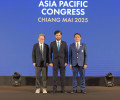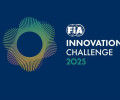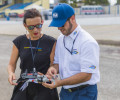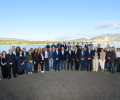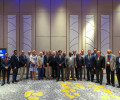McKellar takes over at the wheel of FIA Mobility
03.12.14
As he prepares to start his new role as Secretary General for Mobility at the FIA, Andrew McKellar, gives his thoughts on the challenges ahead and explains why, for clubs, the future can be bright.

Q: It’s a time of great change in mobility. Is it a challenging time to be taking up your new position?
A: It’s a fascinating time. The overwhelming challenge facing many motorists today is access to safe, affordable and convenient transport. In many cases people are grappling with the increasing time pressures of everyday life, battling increasing congestion, the condition and adequacy of transport infrastructure or the costs of transport access and usage.
We are seeing many innovative responses to these issues through growing access to digital technologies and communications, along with emerging models of collaborative consumption.
The great thing for motorists is that these developments can offer new choices and greater flexibility. The challenge for motoring clubs is to adapt and respond to the changing demands of our members. If we do that we will continue to fulfil a valued and trusted role for them.
Q: So is the rise of the connected car a threat or an opportunity?
A: It’s an issue many clubs are grappling with. It’s clear that vehicle manufacturers and others in the automotive supply chain understand the imperative of building a more direct relationship with the customer.
Motoring clubs need to actively position themselves to promote competition and consumer rights, and to develop new products and services that utilise connected technologies.
While there is a very real competitive challenge for motoring clubs, many also have extensive B2B connections with manufacturers. Ultimately, the best opportunities for motoring clubs arising from the connected car are likely to come from strengthening these partnerships and collaborations.
Q: You have a strong club background from your time as CEO of the Australian Automobile Association.
How will this benefit you at the FIA?
A: I hope the experience I’ve gained through the AAA will provide a firm grounding for my new role. One of the key lessons I’ll take from the AAA is the importance of a strong stakeholder focus. Australian clubs have a strong member focus. They are quite strategic, continuously benchmarking against emerging competitors and seeking new opportunities to provide better services.
We need to be responsive to our members’ diverse needs. Many are looking for value added services, transparency and good communications. If I can get that mix right, then we’ll be successful.
We need to provide a forum for exchange of knowledge among the developed clubs and harness that strength to support enhanced capabilities among emerging clubs. The FIA must support the efforts of its members by taking a stance on issues such as access to affordable mobility and enhanced road safety.
Q: Road safety has been a key area of FIA campaigning in recent years. How do you see that progressing?
A: I see two key approaches. First, the FIA must strengthen its role as a leading global advocate for road safety. We have some great strengths in terms of leadership and expertise, and we can leverage the organisation’s profile in order to talk to politicians and decisionmakers around the world.
Second, we must continue to support FIA members in taking practical action at national, regional and local level to raise awareness and deliver improved road safety outcomes through initiatives like the FIA’s Road Safety Grants Programme.

 Facebook
Facebook Twitter
Twitter